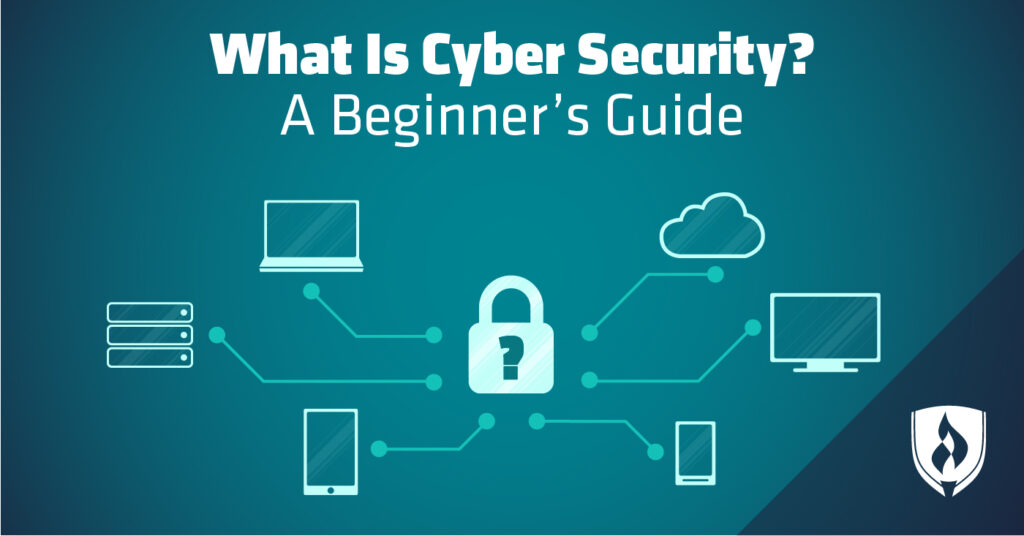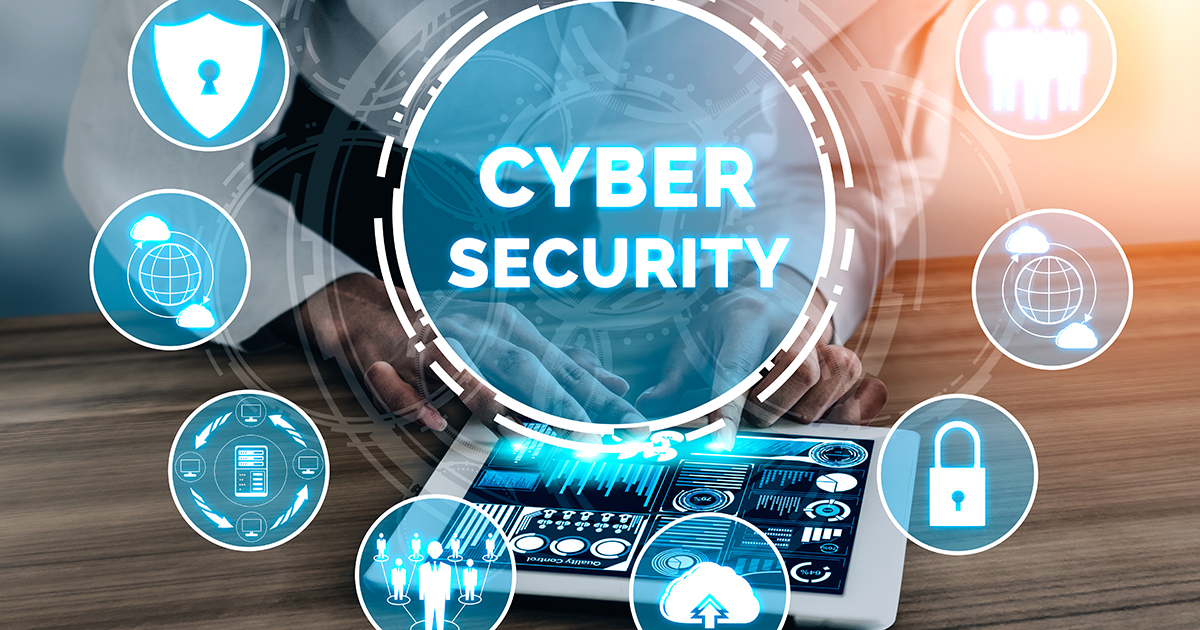whats cyber security

In today’s fast-paced and interconnected world, the threat of cyber attacks is ever-present. From large corporations to small businesses and even individuals, the importance of protecting sensitive information and digital assets has become paramount. This is where the field of cyber security comes into play. But what exactly is cyber security? In this article, we will delve into the intricacies of this rapidly evolving discipline, exploring its definition, significance, and various strategies employed to safeguard against online threats. Whether you are a tech-savvy professional or simply an internet user concerned about your digital safety, understanding the fundamentals of cyber security is crucial in navigating our increasingly digital landscape.
Defining cyber security in the digital age

Cybersecurity, in the digital age, refers to the measures and practices put in place to protect computer systems, networks, and data from unauthorized access, theft, damage, or disruption. As technology becomes increasingly advanced and integrated into our daily lives, the need for robust cybersecurity has become paramount. It encompasses various aspects such as securing information stored on computers and servers, preventing unauthorized access through firewalls and encryption techniques, detecting and mitigating potential threats through intrusion detection systems and antivirus software, as well as ensuring the privacy of personal information.
In today’s interconnected world where we rely heavily on digital devices for communication, financial transactions, online shopping, entertainment streaming, and more; cybercriminals are constantly finding new ways to exploit vulnerabilities in these systems. Cybersecurity professionals play a crucial role in identifying these vulnerabilities before they are exploited by hackers or other malicious actors. They work tirelessly to develop strategies that can protect against attacks like phishing emails or ransomware attacks that can compromise sensitive data or disrupt critical infrastructure. As technology continues to evolve at an unprecedented pace with the rise of artificial intelligence (AI), internet of things (IoT), cloud computing, and 5G connectivity; cyber threats are also evolving rapidly. Therefore it is essential to continuously redefine cybersecurity practices to adapt to this dynamic landscape.
Importance of cyber security in today’s world
Cyber security is the practice of protecting computer systems, networks, and data from digital threats or unauthorized access. In today’s interconnected world, where technology plays a pivotal role in both personal and professional aspects of our lives, cyber security has become increasingly important. The rise in cybercrimes such as hacking, identity theft, phishing attacks, and malware infections highlights the need for robust measures to safeguard our digital assets. One key reason why cyber security is crucial is the protection of sensitive information. With an increasing amount of personal data being stored digitally, ensuring its confidentiality and integrity has become a top priority. Cybersecurity measures like encryption techniques and secure network protocols help prevent unauthorized individuals from accessing private information.
Moreover, effective cyber security practices are essential for businesses to maintain their reputation and avoid financial losses. A successful cyber attack can result in significant damage to an organization’s brand image and customer trust. By implementing strong firewalls, regular system updates, employee training programs on cybersecurity best practices, companies can mitigate potential risks and protect their valuable digital assets.
Common threats and vulnerabilities to consider
Cybersecurity refers to the practice of protecting computer systems, networks, and digital information from unauthorized access, damage, or theft. In today’s interconnected world, where technology plays a crucial role in our personal and professional lives, it is essential to understand the common threats and vulnerabilities that can compromise our digital security. One common threat is malware, which includes viruses, worms, Trojans, ransomware, and spyware. These malicious software programs can infect computers and networks through email attachments, suspicious downloads or websites. They can disrupt system operations or steal sensitive data without the user’s knowledge.
Another vulnerability to consider is weak passwords or authentication methods. Many individuals use easily guessable passwords such as “123456” or their birthdates. Weak passwords make it easier for hackers to gain unauthorized access to accounts and systems. Additionally, phishing attacks exploit human vulnerabilities by tricking users into revealing their login credentials or personal information through fake emails or websites posing as legitimate entities. Understanding these common threats and vulnerabilities highlights the importance of implementing robust cybersecurity measures such as regularly updating software patches, using strong passwords combined with multi-factor authentication methods when possible. It is also crucial to educate individuals about potential risks of clicking on suspicious links or downloading files from unknown sources to minimize exposure to cyber threats.
Strategies for protecting against cyber attacks
Cybersecurity refers to the measures taken to protect computer systems, networks, and data from unauthorized access, theft, or damage. In today’s digital age, where cyber threats are becoming increasingly sophisticated and prevalent, it is crucial for individuals and organizations to employ effective strategies for protecting against cyber attacks. One key strategy is implementing strong passwords. Weak passwords can easily be cracked by hackers using automated tools. It is recommended to use a combination of upper and lowercase letters, numbers, and special characters in passwords. Additionally, regularly updating passwords and avoiding reusing them across multiple accounts can help mitigate the risk of unauthorized access.
Another important strategy is keeping software up to date. Cyber attackers often exploit vulnerabilities in outdated software versions as they may have known security flaws that can be easily targeted. Regularly installing software updates and patches helps ensure that any identified vulnerabilities are fixed promptly. Furthermore, educating employees about cybersecurity best practices is essential for overall protection against cyber attacks. This includes training staff on how to identify phishing emails or suspicious links and emphasizing the importance of not sharing sensitive information with unknown sources online. Overall, adopting these strategies can significantly enhance an individual or organization’s defense against cyber attacks by strengthening their cybersecurity posture.
The role of individuals in maintaining cyber security
Cyber security refers to the practices and measures taken to protect computers, servers, mobile devices, electronic systems, networks, and data from digital attacks or unauthorized access. While organizations and governments play a crucial role in maintaining cyber security, individuals also have an important responsibility in this regard.
Firstly, individuals need to be aware of the potential risks associated with their online activities. This includes being cautious while sharing personal information on social media platforms or other websites and refraining from clicking on suspicious links or downloading files from untrusted sources. By practicing good online hygiene such as regularly updating software and using strong passwords that are unique for each account, individuals can significantly reduce the likelihood of falling victim to cyber-attacks. Secondly, individuals must stay informed about the latest threats and trends in cyber security. By keeping up with news updates or following reputable blogs and websites dedicated to cybersecurity awareness, individuals can gain valuable insights into emerging threats and learn effective ways to protect themselves. Additionally, when individuals encounter any suspicious activities or believe they have been targeted by a cyber-attack, promptly reporting it is crucial in preventing further damage.
Cyber security is not solely the responsibility of organizations or governments; every individual has a role to play. By being vigilant about their online activities and staying informed about potential risks and countermeasures against cyber-attacks, individuals can contribute towards creating a safer digital environment for themselves and others.
ALSO READ : What Does Launching A Website Mean?
Government and organizational efforts to combat cyber threats
Cybersecurity refers to the measures taken to protect computer systems, networks, and data from unauthorized access or attacks. In recent years, with the increasing reliance on technology in all aspects of life, cybersecurity has become a critical concern for individuals, organizations, and governments alike. As cyber threats continue to evolve and become more sophisticated, governments and organizations have ramped up their efforts to combat these threats.
Governments play a crucial role in combating cyber threats by implementing various policies and regulations aimed at ensuring the security of their own infrastructure as well as that of the private sector. They establish laws to deter cybercriminals and provide legal frameworks for prosecuting those involved in cybercrimes. Governments also invest substantial resources into building robust cybersecurity capabilities within their agencies responsible for protecting national infrastructure and sensitive information.
Organizations across industries are equally invested in combating cyber threats due to the potential financial loss, reputational damage, and regulatory consequences associated with breaches. They implement comprehensive cybersecurity strategies that include risk assessments, threat monitoring systems, employee training programs, data encryption protocols, firewalls, intrusion detection systems, among others. Many organizations collaborate with government agencies and industry peers through public-private partnerships to share intelligence on emerging cyber threats and develop effective countermeasures. Overall, government efforts combined with organizational initiatives are essential in combating ever-evolving cyber threats. By staying vigilant about potential risks while continuously investing in advanced technologies and personnel training programs focused on cybersecurity best practices can help mitigate such risks effectively.
Conclusion: Staying vigilant for a secure online future
In conclusion, cyber security is a crucial aspect of our increasingly digital world. It encompasses various measures and practices that aim to protect individuals, organizations, and governments from unauthorized access, use, disclosure, disruption, or destruction of information. With the rise in cyber threats and attacks, it is imperative for everyone to be aware of the importance of cyber security and take necessary precautions to safeguard their personal data and privacy. By implementing strong passwords, regularly updating software and antivirus programs, being cautious while clicking on suspicious links or downloading files, and staying informed about the latest cyber threats and protection techniques, we can all contribute to a safer online environment. Let us prioritize cyber security in our daily lives and work together to build a secure digital future for all.
ALSO READ / impact of screen time on childrens





